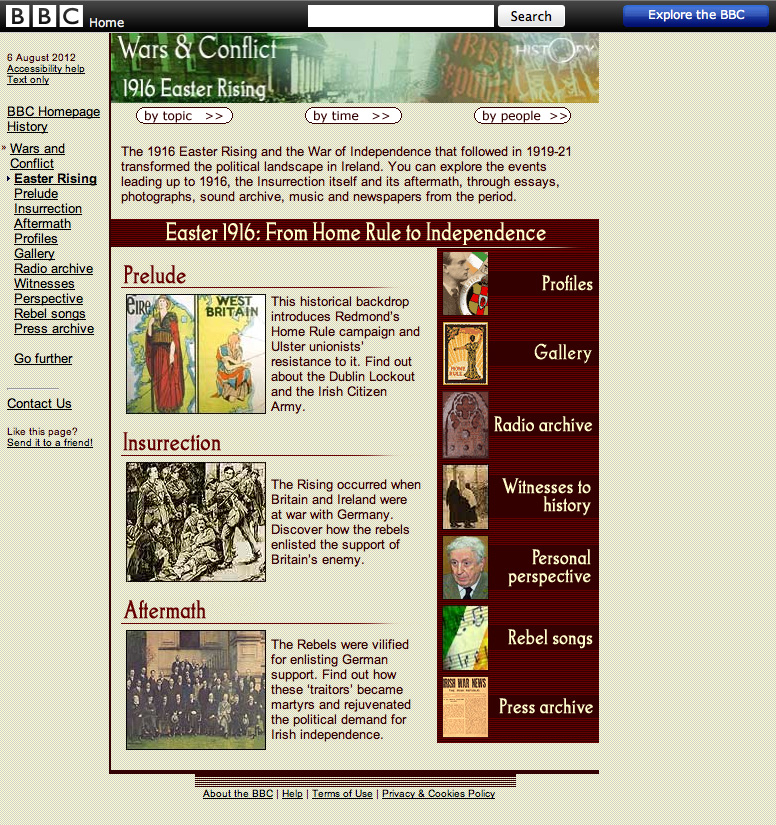
Digital Battlefield: Ireland’s Case Study of Insurgency
AMERICANS HAVE LEARNED MUCH about insurgency since the 9/11 attacks, most of it filtered through the lens of counterinsurgency. We have, in effect, studied insurgencies simply to better quell them. Ireland’s Easter Rising of 1916, however, offers a chance to examine an insurgency for its own sake.
One of the most romantic, seemingly foredoomed revolts of European history, the uprising was intended to be part of a countrywide revolt against the British rule of Ireland. Beginning on Easter Monday, it went forward in Dublin although plans elsewhere were compromised. Those who took up arms had no hope of winning but sought to make a “blood sacrifice” that would inspire continued opposition to the Crown.
In the short run, the Easter Rising was a disaster; British forces destroyed the rebel strongholds within a week. But in the long run, it was an astonishing success. The summary executions of the ringleaders won the movement international sympathy.
The leaders who survived—among them Eamon de Valera, who would go on to be Ireland’s president—fought the British to a standstill and gained an Irish Free State in 1922 that would become the basis for an Irish republic.
The point of departure for websites commemorating the Easter Rising is The 1916 Rising: Personalities and Perspectives (nli.ie/1916), the National Library of Ireland’s extensive, richly illustrated online exhibition, which can also be downloaded in PDF.
The BBC’s Wars and Conflict: 1916 Easter Rising (bbc.co.uk/history/british/easterrising) is especially good on eyewitness testimony from key people associated with the event. And not to be missed is William Butler Yeats’s unforgettable poem, “Easter 1916,” with its famous refrain, “a terrible beauty is born.” Although the poem is widely available, the online Norton Anthology of Poetry features an annotated version (norton.com/college/english/nap/easter_1916_yeats.htm).
Mark Grimsley, professor of history at Ohio State University, blogs at Blog Them Out of the Stone Age at warhistorian.org/wordpress.





